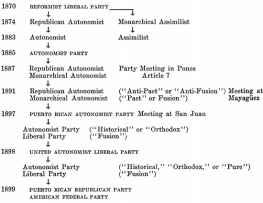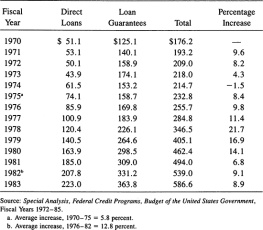1991 The University of North Carolina Press All rights reserved Manufactured in the United States of America
The paper in this book meets the guidelines for permanence and durability of the Committee on Production Guidelines for Book Longevity of the Council on Library Resources.
95 94 93 92 91 5 4 3 2 1
Library of Congress Cataloging-in-Publication Data
Brady, Linda P.
The politics of negotiation : Americas dealings with allies, adversaries, and friends / Linda P. Brady.
p. cm.
Includes bibliographical references and index.
ISBN 0-8078-1971-9 (cloth : alk. paper).
ISBN 0-8078-4320-2 (pbk. : alk. paper)
1. Diplomacy. 2. Diplomatic negotiations in international disputes. 3. Negotiation. 4. United StatesForeign relations 1981-1989. 5. International relations. 6. World politics1975-1985. I. Title.
JX1662.B73 1991 91-13
327.2dc20 CIP
THIS BOOK WAS DIGITALLY MANUFACTURED.
Preface
During the fall of 1980 I served as defense adviser with the U.S. delegation to the Negotiations on Mutual and Balanced Force Reductions (MBFR) in Vienna, Austria. From 1973 until early in 1989, when the unsuccessful talks were brought to a close, members of NATO and the Warsaw Pact met weekly in the Redoutensaal of the Hofburg Palace to discuss the reduction of conventional forces in Central Europe.
The format of the talks required East and West, on alternating Thursdays, to deliver a plenary statement to the delegations of the participating countries. Members of the delegations often gathered in the Hofburg early on Thursday to take part in informal discussions with their colleagues. On one Thursday, as I recall, the discussion turned to politics.
A military representative from one of the Eastern delegations suggested that if the military representatives met together in a separate location for two weeks they could hammer out a reasonable agreement limiting conventional forces in Central Europe. His counterpart on a Western delegation agreed, noting that military officersregardless of their nationalityshared an understanding of the nature of the military balance in Europe and the minimum requirements for deterrence and defense.
A third military representative, again from the East, remarked that the complicating factor in MBFR was politics. An essentially military issue had been transformed into a political debate, and herein lay the explanation for lack of progress. The nodding agreement of others present suggested the consensus of the group: if only politics were eliminated from these negotiations, MBFR might succeed. One way to eliminate politics would be to take responsibility for MBFR away from the politicians and the diplomats and place it in the hands of the military.
The problem, of course, is that it is impossible to eliminate politics from international negotiation. Political considerations influence many aspects of negotiation, from decisions to enter into discussions, to the specification of interests and objectives, to bargaining strategies and concession-making. Put differently, international negotiation does not occur in a political vacuum. Efforts to explain the process and outcome of international negotiation that ignore politics will be at best incomplete and at worst irrelevant.
This book is about international negotiation and the role that politics has played in explaining the success or failure of negotiations between the United States and selected allies, adversaries, and friends during the 1970s and the 1980s. My argument assumes that international negotiation is a political process in which nations pursue their security interests and objectives while attempting to reconcile those interests with their negotiating partners. This reconciliation or balancing of interests requires consensus-building at home and abroad. The process takes one form in negotiations between alliance partners that share, by definition, a common perception of the threat and an agreed security commitment. The process takes another form in negotiations between adversaries that share, also by definition, conflicting interests and perceptions of the requirements for international security.
By far the most difficult negotiations, in my view, occur between friendscountries that share neither membership in a formal alliance nor an adversarial relationship. In these cases, the absence of shared perceptions of security interests and the nature of threats to international security impedes the consensus-building necessary for successful negotiations. In all of these caseswhether dealing with allies, adversaries, or friendshistory, culture, and politics are foremost in explaining the process and outcome of negotiation.
This book is organized into five parts. Part I consists of two chapters. Chapter 1 briefly reviews American efforts to enhance security through negotiation during the Cold War and identifies two themes in scholarly approaches to understanding negotiation: negotiation as art and negotiation as science. Chapter 2 presents a framework for understanding international negotiation around which subsequent case studies are organized. Elements of the framework include: background factors (history, culture, and the personal characteristics of negotiators and political leaders), context (defined as the nature of the prior relationship between the United States and its negotiating partners), substantive concerns (interests and objectives), process (bargaining and concession-making), and politics. The framework is simply thata way of organizing the multiple influences on negotiating behavior. It does not purport to be a theory or model of negotiation but highlights those factors that should be taken into account in the development of theories or models of negotiation.
Parts II, III, and IV represent the heart of the book. These chapters offer six case studies that illustrate the role of politics and other factors in explaining the process and outcome of negotiations between the United States and selected allies, adversaries, and friends during the 1970s and the 1980s. In Part II, to examine the process by which the United States negotiates with allies, I have selected negotiations that grew out of the Long Term Defense Program (LTDP) signed by the United States and its NATO allies in May 1978. These negotiations concerned logistical support for a U.S. deployment to the European theater in time of crisis or war (the U.S.-German Wartime Host Nation Support Agreement) (chapter 3) and the debate within NATO leading to the December 1979 decision to deploy new U.S. theater nuclear forces in Europe (chapter 4).
Part III considers two cases that illustrate the problems encountered in negotiating with adversaries. These cases are the Vienna negotiations during the 1970s and the 1980s between members of NATO and the Warsaw Pact concerning conventional forces in Europe (the MBFR negotiations, noted earlier) (chapter 5) and the Geneva negotiations between the United States and the Soviet Union concerning theater nuclear forces in Europe (the Negotiations on Intermediate-Range Nuclear Forces, or INF) (chapter 6). The INF negotiations resulted in a treaty signed by the United States and the Soviet Union in December 1987.
Perhaps the most difficult negotiations in which the United States has been involved are with friends or those that concern mixed relationships. These issues are the focus of Part IV. To illustrate the problems of negotiating with friends, I have selected a series of discussions between the United States and several of the Arab states and Israel concerning basing rights and logistical support for a U.S. deployment to the Persian Gulf in time of crisis or war (chapter 7). U.S. efforts to negotiate with its NATO allies about the defense of Western interests in the Persian Gulf (the so-called out-of-area issue) illustrate the problem of mixed relationships (chapter 8). These relationships are mixed because, while dealing with its European allies (whether bilaterally or within the formal NATO arena), the United States raises issues that fall outside the scope of traditional NATO responsibilities.





